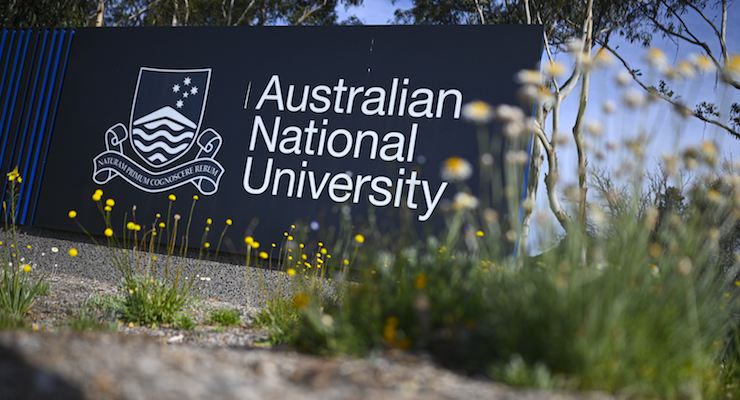
Australia’s international student crisis is well and truly biting, and universities are attempting to reinvent themselves to appeal to domestic students.
From focusing on influencer-style experiences to pivoting to inclusive language, new strategies have emerged to help institutions become profitable and relevant in the post-pandemic world.
But do these fads actually help to foster true diversity and inclusion?
Wokeness wars
University handbooks released late last year have been criticised for their push for inclusive language.
Australian National University’s Gender Institute handbook encourages tutors to replace “mother” and “father” with “gestational” and “nongestational” parent, and use “parent-inclusive language” such as “chestfeeding” instead of “breastfeeding” and “human milk” rather than “mother’s milk”.
Federal Education Minister Alan Tudge has blasted the handbook as “woke rubbish” and claimed it undermined public confidence in universities.
Similarly, the University of NSW has advised teaching staff not to call roll or attendance to avoid accidentally misgendering students using a different name than the one listed. Other guidelines urged teachers to use the term “humankind” instead of mankind.
One study, commissioned by telco companies which surveyed executives across 80% of Australian higher education and TAFE, found institutes are moving away from expensive lecture halls and prioritising the creation of “Instagram-worthy” experiences to “breathe life” into campuses.
Does any of this address the real issues?
Declarations of wokeness will do little to battle universities’ long-standing perception of being white and elitist, former NSW education minister and head of UTS’ Centre for Social Justice and Inclusion Verity Firth told Crikey.
“[An institution’s] job is to be available and accessible for as many people who are interested in receiving a university education,” she said.
“Unless universities really embrace the diversity agenda — which really is about equality of access to a good education experience — then we will always be seen as bastions of the elite.”
Addressing diversity ensures there are pathways to university that don’t just rely on an ATAR score, Firth said, along with making sure students can afford to survive while studying.
“It also means once you get to university, you have the sort of environment that is genuinely welcoming and doesn’t make particularly first-in-family students feel as if this is a world that they will never belong to and can never succeed at.”
Across Australia’s 41 universities in 2018, 94% of senior executives were white.
Let’s not forget: universities are businesses
Domestic students don’t bring in the same kind of money as international students, but appealing to them is more important than ever. Universities across Australia are recording higher levels of interest among prospective students and fee changes to humanities degrees haven’t impacted enrolments as much as expected.
Gwilym Croucher, senior lecturer at the Melbourne Centre for the Study of Higher Education, told Crikey that universities “are quite responsive to student demands”.
“They follow changing student preferences, they follow changing student expectations, they follow changing community and they follow changing government expectations.
“But they are big and complex institutions so it may not happen instantly.”
The focus on on-campus experiences, Croucher said, was largely driven by competition, especially from universities in the US and Canada which boast massive pools and world-class dining facilities.
Facilities also had to change to meet modern demands, he said. Libraries, for example, are no longer spaces to find books but study hubs for groups.
“There’s really a trend around the world of students acting as consumers.”








I disagree.
Particularly, with the reference to the Gender Institute’s handbook and with the description of treating people with respect as a “fad”.
In one of the articles that this one links to, there is a quote where the ANU themselves say that the Gender Institute’s handbook is not a policy: it’s research output.
In an earlier article in the Telegraph, the ANU clarified further:
What is often missed in this debate is that, at most universities, the academics have academic freedom. The ANU’s academics will not start saying “chest-feeding” and adopt gender-neutral language unless find that language is useful for their academic output. Individual course convenors determine how courses are taught, not random articles published by other academics.
As a queer ANU student I must ask in addition to the above: what aspect of Universities telling their staff not to misgendering trans people is a “fad” which evidences the downfall of universities? It’s a “fad” that the universities will accept queer students and faculty for who they are? Oh no, we can’t have that!
Let’s not forget: universities are businesses– and therein lies the problem
“Australian National University’s Gender Institute handbook encourages tutors to replace “mother” and “father” with “gestational” and “nongestational” parent.”
Say it ain’t so, Joe!
While recognising Joey Mann’s useful contribution, it really does just set up the left as looking like ineffectual navel-gazers. The reality is that this is a fringe issue for the left, and should be seen as such, and explained as such by Labor leaders.
Tolerance is about allowing everyone to have their voice, but not blindly accepting anything that is published as being gospel.
As Joey pointed out, academic freedom is supposed to be a fundamental characteristic of a university. The enquiries of the Gender Institute are as academically valid as any other research institutes in the university, and if they are not, it is the place of peer review to point it out. But even more relevantly, and what often seems to be missed in this discussion, is that the handbook is discussing clinical and research settings in particular when it argues for using terms like ‘gestational parent’. ‘Chest-feeding’ strikes me as an odd one though, since there’s nothing gender-specific about breast tissue. Or breasts for that matter.